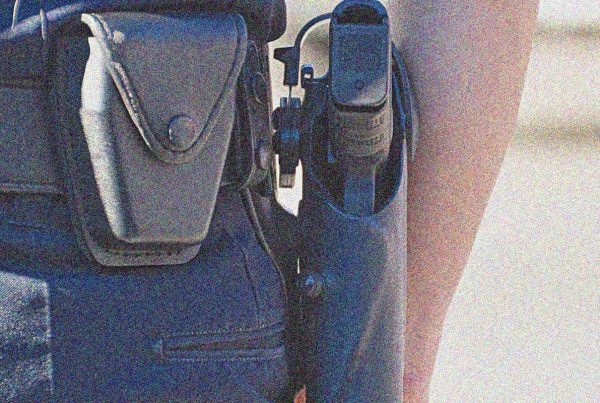Today, a police disciplinary tribunal sentenced senior Toronto police officer, Supt. Mark Fenton, to be reprimanded and forfeit 30 vacation days for his role in the G20 mass arrests. By contrast, the prosecution had recommended a one-year demotion, one group of complainants had called for Supt. Fenton’s dismissal, and another group of complainants had called for both demotion and systemic remedies.
Last summer, Supt. Fenton was found guilty of discreditable conduct and unnecessary exercise of authority, contrary to the Code of Conduct outlined in Ontario Regulation 123/98, for ordering the mass arrest of civilians during the 2010 G20 protests. The disciplinary charges stemmed from two mass arrests which resulted in hundreds of individuals – peaceful protestors, journalists, independent legal monitors, casual observers, and ordinary pedestrians – being surrounded, detained and arrested by police. In both cases, the tribunal concluded that the gatherings were peaceful and that Supt. Fenton acted with no regard for the rights of peaceful protesters to free assembly and expression.
KEY LINKS
Disciplinary sentences play a crucial role in holding officers to account and deterring police misconduct in the future. Further, CCLA firmly believes that senior officers who wield decision-making power must face real consequences when their orders result directly in Charter violations. Unfortunately, the decision in Supt. Fenton’s sentencing does not weigh the impact on civilians’ Charter rights as heavily as other mitigating factors.
Nevertheless, CCLA continues to push for post-G20 accountability on a number of different fronts. In April, the Ontario Court of Appeal certified a class action seeking financial compensation for individuals detained and arrested during the G20. Individual lawsuits have also been filed, including the Figueiras case, which led to a significant victory at the Ontario Court of Appeal in 2015. We have been involved in all of these legal actions.
CCLA made submissions before the disciplinary tribunal in Supt. Fenton’s case, arguing that police cannot indiscriminately arrest people attending or observing a peaceful protest without violating the Charter of Rights and Freedoms. We emphasized that the right to protest in public spaces – even to voice unpopular opinions – is an essential democratic right. We also argued that a commanding officer should be held responsible for ordering an unlawful arrest, even if they believe there to be reasonable justification for it.
About the Canadian Civil Liberties Association
The CCLA is an independent, non-profit organization with supporters from across the country. Founded in 1964, the CCLA is a national human rights organization committed to defending the rights, dignity, safety, and freedoms of all people in Canada.
For the Media
For further comments, please contact us at media@ccla.org.





